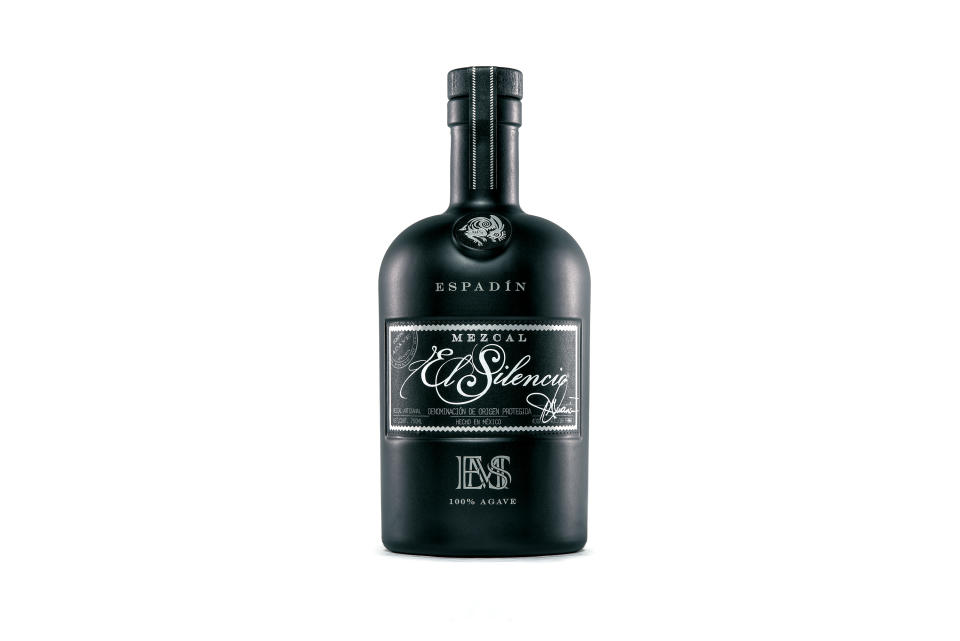We’ve Sipped and Tasted: These Are The 9 Best Mezcal Brands to Drink Right Now

If you purchase an independently reviewed product or service through a link on our website, Rolling Stone may receive an affiliate commission.
Mezcal is quickly becoming more popular than ever. The U.S. is now the number one consumer of mezcal in the world, with mezcal’s home country of Mexico as the second biggest market. Chances are you’ve heard the rumblings of mezcal’s rise, whether from a liquor connoisseur or the drinks menu at almost any bar. And, if you’re like us, you’re probably looking to understand the hype by drinking some of the best mezcal brands.
More from Rolling Stone
Looking for a New Timepiece? These Are the Bulova Watches That Deserve a Space On Your Wrist
Survey Says - We've Found the Best Ways to Watch 'Family Feud' Online Without Cable
In This Article
What Are the Best Mezcal Brands?
Mezcal vs. Tequila: What’s the Difference?
How Is Mezcal Made?
How Can You Drink Mezcal?
Buying Guide: How We Chose the Best Mezcal
What Are the Best Mezcal Brands?
Ready to try out mezcal or add a new bottle to your bar cart? We’ve chosen some of the best mezcal brands you can buy online, from go-to brands making easy-to-sip offerings, to premium bottles that deserve a place on your shelf next to your high-end bourbon or scotch.
1. Ilegal Mezcal Anejo

Looking to sample an aged mezcal? Go for this Ilegal Anejo. And if you’re curious about the brand’s name, there’s a good story. The founder of Ilegal, John Rexer, used to smuggle mezcal from Mexico to his Bar, Café No Sé, in Antigua. After realizing how good the stuff was, Rexer went legit with the foundation of Ilegal in 2006.
This Anejo variety is handcrafted in small batches by fourth-generation mezcaleros, double distilled in the Santiago Matatlan Valley of Oaxaca, Mexico. They use perfectly ripe roasted Espadín that’s then crushed, fermented in oak vats and double distilled in small copper stills. Finally, it’s aged for 13 months in American and French oak barrels. The result is a rich and rustic mezcal with notes of dark chocolate, orange and sweet agave.
2. Mezcal El Silencio – Espadin
Founded in 2013, Mezcal El Silencio has pioneered the art of mezcal making at its small distillery and production facility in Oaxaca. With small-batch production and careful attention to detail (even their bottles are washed with mezcal!), this Espadín mezcal showcases the best of El Silencio’s expertise: a complex and robust flavor that’s sharper on the nose yet smooth on the tongue. A more intense mezcal compared to other bottles on our list, the Espadín features notes of citrus and earthy greens, a hint of peppery spice, and the subtle sweetness of roasted figs and sweet potatoes.
We tried this mezcal in a number of cocktails (think spicy margaritas and El Silencio’s take on a mezcal negroni) and the earthiness of the Espadín gave the drinks a wonderful warmth and heartiness. But try it on its own too — chilled with an ice cube or sipped slow and neat in a traditional copitas, the traditional clay mezcal sipping cup.
3. Bozal Mezcal Ensamble

If you’re new to mezcal, this Bozal Ensamble is a great introduction. It’s made using three types of agave, creating a unique complexity and approachability. The first agave is Espadín (the typical mezcal agave) but it’s supported by Barril for citrus and floral notes, as well as Mexicano agave for earthiness. The Barril and Mexicano work to balance out the smokiness of Espadín, making this excellent for mezcal newbies and aficionados alike. This balanced flavor also lends itself to classic mezcal (or tequila) cocktails.
4. Del Maguey Chichicapa Mezcal
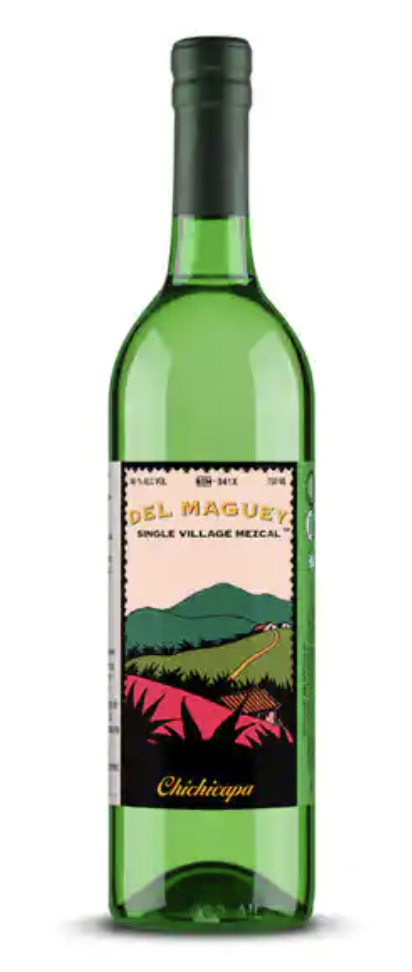
When we said that Espadín agave can be used for premium mezcals, we were talking about bottles like this Del Maguey Chichicapa. It’s extremely soft on the palate, leading with sweetness and citrus that’s followed by a rich, smokey finish. It’s one of the best mezcals for both cocktails and sipping neat, making it a good standalone mezcal in any home bar.
The drinking experience with Del Maguey is authentic — as is the brand’s process. They use 100% organic agave and follow ancient distillation processes. Each type of Del Maguey is named after the Oaxacan village where it’s made, with this Chichicapa celebrating its namesake village that sits 6,000 feet above sea level.
5. Montelobos Tobalá
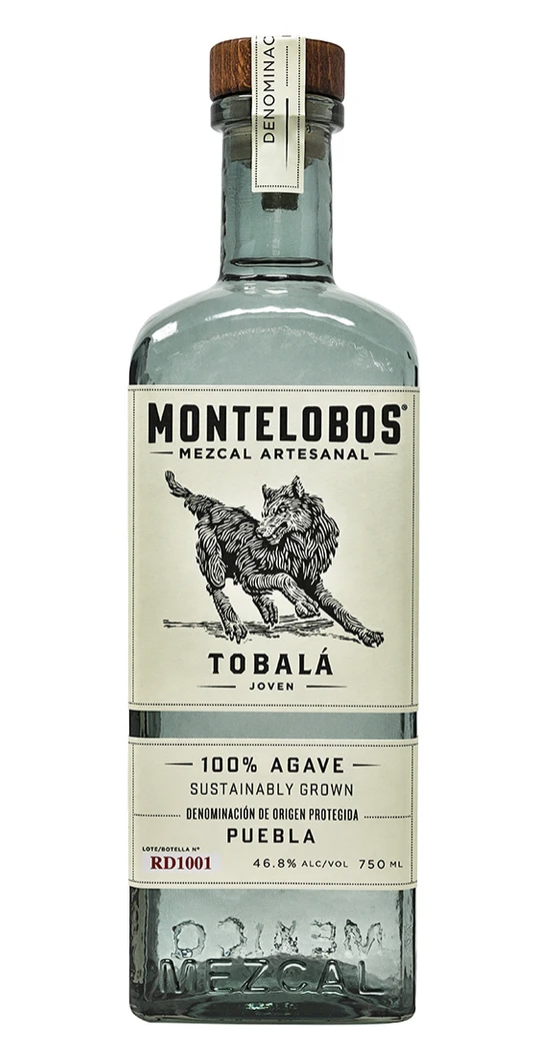
When mezcal started blowing up around the world, many producers began over-harvesting wild Tobalá agave. Not Montelobos. They’ve taken the hard route of sustainably farming their own Tobalá agave without pesticides or herbicides. It’s paid off, as this bottle is one of the best examples of Tobalá mezcal on the market. After the agave is harvested, Montelobos uses traditional processes of pit roasting and small copper pot distillation. The mezcal is light and very vegetal with a nose of lemon and green pepper, followed by citrus, roasted fig and basil on the palate.
6. Mezcal Rey Campero Tepextate
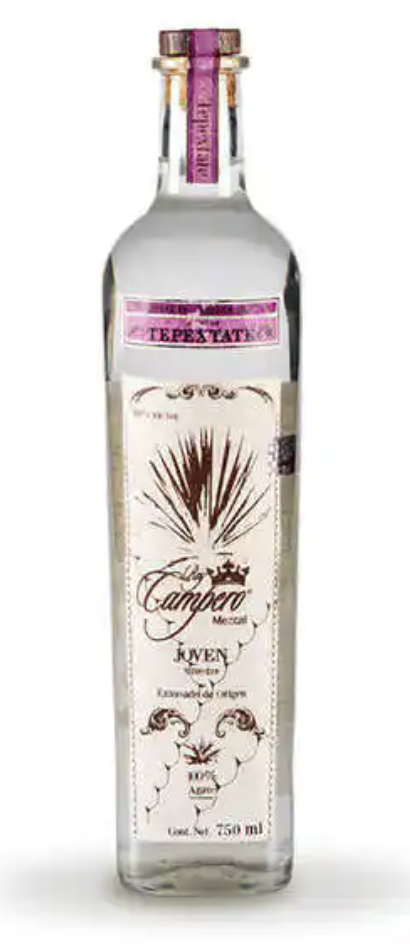
For a seriously upscale mezcal experience, try this Rey Campero Tepextate (the name fittingly translates to “King of the Countryside”). The mezcal is made using wild Tepextate agave that’s been matured for 15 to 18 years before harvest (don’t worry, Rey Campero plants more after harvesting). The agave is roasted and crushed before fermenting in the open air with wild yeast. It’s then double distilled in copper pots and put in Rey Campero’s old-school bottles. The flavor is forceful, lively and full of pepper, making it an excellent slow-sipper for mezcal lovers.
7. Casamigos Joven

By now, most of us are familiar with Casamigos tequila thanks to its celebrity co-founder, George Clooney. But the brand also has a great mezcal: Casamigos Joven. The mezcal is made by 4th generation Mezcaleros in Oaxaca using 100% premium Espadín. So while it might be from a young brand, it’s a classic mezcal through-and-through. It’s fairly clean, although a thick smokiness reminds you what you’re drinking, with earthy and fruity notes to boot. This is another bottle that really shines in cocktails but can also be sipped on the rocks or neat.
8. The Lost Explorer Mezcal Espadin
One of the most flavorful expressions of Mezcal that we’ve had is from The Lost Explorer, a new mezcal brand co-founded by eco-adventurer David de Rothschild and entrepreneur Thor Björgólfsson. Inspired by adventure travel, sustainability and a focus on mezcal’s Oaxacan roots, every bottle of The Lost Explorer is produced in very small batches and sold in hand-labeled bottles made from recycled crystal.
Flavor-wise, the mezcal is at once sweet and smokey, and incredibly aromatic to sip. There’s just enough bite to make things interesting, with hints of mesquite and wood mixing with ripe fruit, but everything comes together in a silky smooth finish.
As part of its commitment to the environment, and the land where the agave is farmed, The Lost Explorer teams up with The Voice for Nature Foundation to support regenerative agriculture, biodiversity, circular production and zero waste initiatives in the Oaxaca region.
9. Santo Mezquila
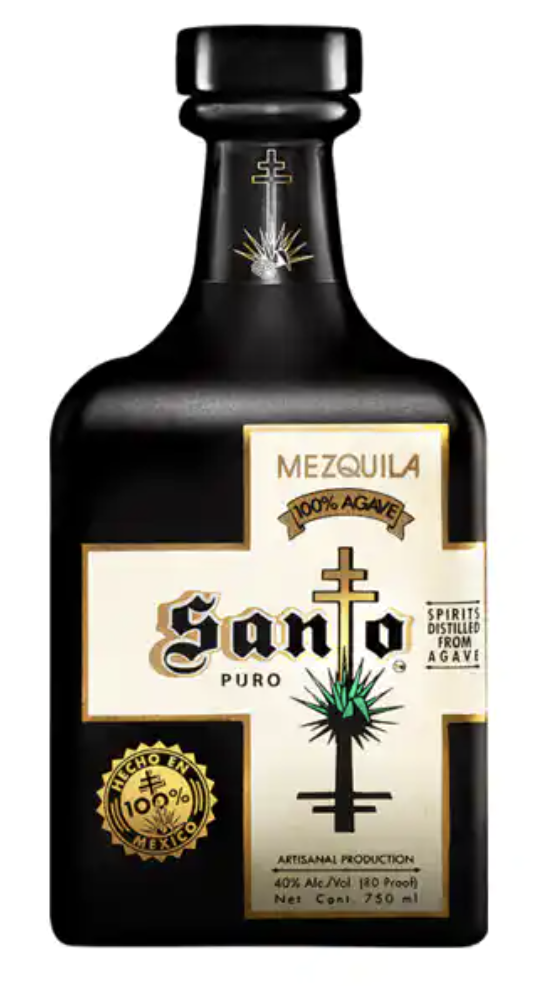
Santo is making waves in the mezcal and tequila world by, well, doing both at the same time. This Mezquila (the world’s only tequila-mezcal blend) is the brain-child of rock-slash-tequila legend Sammy Hagar, who heads up Santo along with celebrity chef Guy Fieri. Hagar came up with the Mezquila because he just wasn’t a fan of mezcal, but wanted something similar. The Mezquila, then, is the best of both worlds: it’s more flavorful than tequila, but not in-your-face smokey like most mezcals. This comes from the blending of a premium, 100% blue weber agave tequila with a 100% Espadín agave mezcal. You’ll pick up a gentle smokiness that makes the Mezquila great for adventurous tastings and even better in cocktails.
Mezcal vs. Tequila: What’s the Difference?
There’s quite a bit of well-founded confusion over what mezcal is, and how it relates to tequila. In short, tequila is actually a subcategory of mezcal, so not all mezcals are tequila, but all tequilas are mezcals. Tequila is traditionally made using Blue Weber agave, while mezcals can be made from many types of agave.
The two taste quite different too, with liquor labeled as mezcal boasting a much more rich, smokey flavor compared to tequila, which gets its sweetness from the Blue Weber agave.
And while true tequila can only be made in the state of Jalisco, Mexico, mezcal can be made (legally) in nine Mexican states (although most of it comes from Oaxaca), and the liquor can use a range of about 30 types of agave. Tequila, on the other hand, must come from the Jalisco region and use at least 51% blue agave. This means distillers have more freedom when it comes to mezcal – and we as consumers, have an exciting range of flavors to taste.
How Is Mezcal Made?
The creation process of mezcal is often very rustic. The agave is first slow-roasted (whereas agave for tequila is typically baked in ovens), usually in a pit in the ground, imbuing that distinctive smokey flavor. At Casa Silencio in Oaxaca, where El Silencio mezcal is made, a small group of workers load hundreds of piñas (the heart of the agave plant) into a quarry-style, underground pit each week, that is heated to extremely high temperatures and lined with large volcanic rocks to create a natural, underground “oven.”
The piñas are roasted for four to six days, then put into a circular stone pit and crushed using a solar-powered stone wheel called a tahona. Though traditionally the tahona was pulled by a horse or donkey, that would walk in circles while leading the one-ton wheel around the pit; El Silencio’s efforts to improve sustainability has replaced the animals with solar power, creating a more productive and eco-friendly way to make mezcal.
Once crushed, the agave is fermented in wooden barrels (naturally-occurring yeast in the air helps to move the fermentation process along) and the liquid is then subsequently distilled in copper or clay stills before being bottled for the consumer.
Unlike most hard liquor, the quality of mezcal is largely dependent on the age of the agave plant — not the age of the liquor itself. Some varieties of agave, such as Tepeztate, can grow up to 30 years before it’s ready to be harvested and made into mezcal (more on this later).
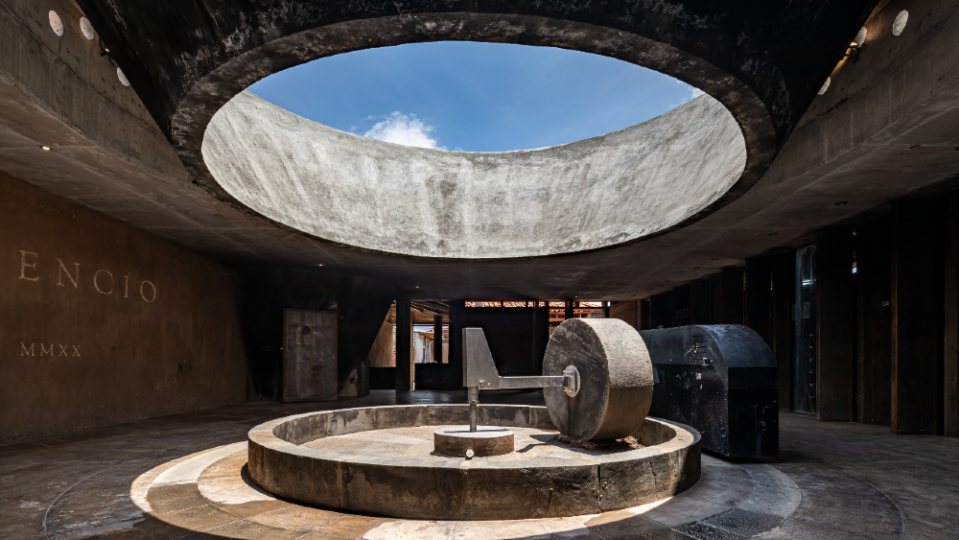
How Can You Drink Mezcal?
No matter where it comes from or what it’s made of, you can count on mezcal to pack a punch – be it extra smokey, tart, spicy or herbal. This makes it a fast-growing favorite with bartenders and cocktail lovers. Mezcal works in most classic tequila cocktails such as margaritas or Palomas, but you can also get more inventive. We recommend trying a mezcal negroni, a margarita-esque mezcalita, or a mezcal and tonic to spice things up.
But mezcal’s bold flavor also makes it ripe for sipping neat or on the rocks. Most of our favorite mezcals are premium spirits that can compete with any fine scotch or cognac, so it’s always good to least taste first before mixing cocktails (or pouring another two fingers). For the authentic experience, try drinking mezcal in these Mexican copitas with some worm salt.
Buying Guide: How We Chose the Best Mezcal
The world of mezcal is large and wide — below are a few features of the spirit we looked for while tasting (and testing for) the best mezcals.
Types of Agave: The agave used in Mezcal is very important. The five most common kinds of mezcal agave are Espadín, tobalá, tobaziche, tepeztate and arroqueño. Espadín agave is by far the most popular and most versatile, making up about 90% of mezcals (from affordable to high-end). Tobalá — sometimes called the “king of mezcals” — is difficult to grow, rare in the wild, and produces a complex bottle of mezcal. Tobaziche is another wild agave that often lends a herbal flavor. Tepeztate and arroqueño are both wild varieties of agave that grow for up to 30 years and produce a full-bodied flavor. We’ve included a wide variety of agave in this guide for all price points.
Creation Processes: The Consejo Regulador del Mezcal (CRM) recognizes three categories of mezcal based on production: Mezcal, Mezcal Artesanal and Mezcal Ancestral. Most high-end brands use Artesanal or Ancestral processes, which involve the ground pits and clay or copper stills we mentioned earlier. However, we’ve also highlighted some fantastic brands that use the more industrial Mezcal process.
Aging: Although most of the “aging” with mezcal refers to the age of the agave plant, some are also aged like other spirits. Like tequila, mezcal uses the Joven, Reposado and Añejo aging classifications. Joven is usually aged less than two months, reposado is aged two months to a year, and Añejo is anything aged more than one year — you’ll find varieties for all flavor preferences on this list.
Taste: Mezcal is often associated with its “smokey” flavor, but smokiness is just one part of a mezcal’s taste profile. We looked for mezcals with a range of tasting notes, similar to a good tequila or whiskey. Just as a tequila can be sweet, herbaceous, floral or mineral, the best mezcals can also range from sweet and smooth, to rich and robust. By the time you savor the notes — anything from cocoa and caramel, to baked spices and burnt wood — the basic idea of a “smokey mezcal” will be long gone.
Best of Rolling Stone
